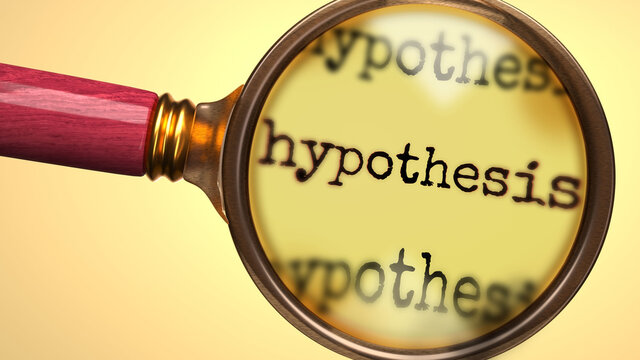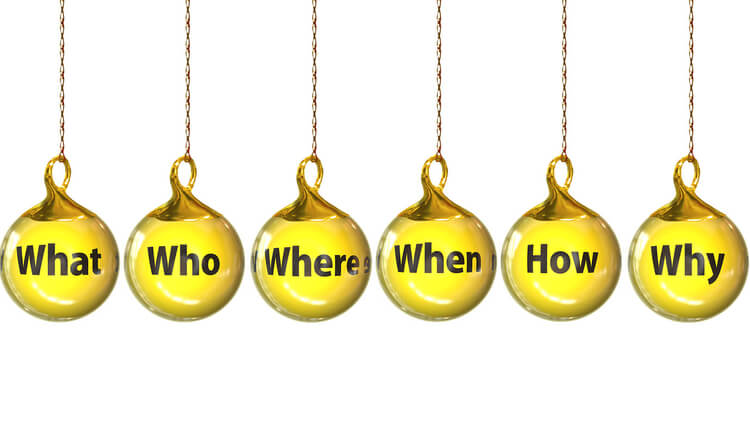
Research problems or questions and hypotheses are important tools that are differently used in similar ways for various research methods. Both hypothesis and research questions are written before research begins and guide the research in the right direction. It is necessary to know that while hypotheses are used in deductive research, researchers use logic and scientific findings to either prove or disprove assumptions. Experimental research is based on experience, where researchers use observations to learn about the research subject.
Defining hypothesis and research problems
A hypothesis is defined as an educated guess, while a research question is simply the researcher wondering about the world. Hypotheses are a part of the scientific research method. They are employed in research in science, sociology, mathematics, and many other fields of research.
On the other hand, research questions are part of experimental or investigative research methods. They are also used in many fields including literature, and sociology.
A hypothesis and assignment writing service can be said to be a form of research where information in terms of data is gathered by taking an initial or hypothetical investigation to come up with a tentative explanation of how the final result will reflect.
The major difference between a research question and a hypothesis lies in the fact that in a hypothesis, the results are postulated. The questions are usually framed towards getting a similar outcome or something near the postulated outcome and therefore, biased. But in research questions, there is basically no predictable or estimated outcome that could guide the researcher or provide any insight about the results that will be obtained. In a research question, the problem of the variable is generally formulated in question form.
How hypothesis and research problems are different
The main difference between hypothesis and research problems is the way they are written or used for writing a paper. As evident from their name, the research problems or questions are mostly stated as a question. On the other hand, the hypothesis is written as a statement and begins with the words “I predict” as they are meant to purpose a theory, which the researcher sets out to prove.

For example, a research question would ask, “What is the effect of heat on the effectiveness of bleach?” but a hypothesis would state, “I predict heat will diminish the effectiveness of bleach.”
Before writing a hypothesis, the researcher must determine what others have discovered about this subject or what they believe it to be so that the researcher can come up with an adequate response regarding it. On the other hand, a research question or problem does not require so much preparation but focus and structure are necessary for addressing the issue. It is only when the research has an idea of what he or she aims to do that they can do it right.
It can be better understood with a simple example; a researcher using a hypothesis would look up studies about bleach, information on the chemical properties of the chemical when heated, and data about its effectiveness before writing the hypothesis. However, when using a research question, the researcher would think about how to phrase the question to ensure its scope is not too broad, too narrow, or impossible to answer, and the readers can get the most accurate information.
When writing the conclusion for research that has been conducted using a hypothesis or is based on a hypothesis, the researcher will help the readers understand if the hypothesis was correct or incorrect, followed by an explanation of the results of the research. On the contrary, the researcher using only a research question will write the answer to the question, followed by the findings of the research and it is pretty straightforward.
One major difference between hypothesis and research problem is that hypothesis is generally used for stating the relationship that exists between two or more variables, whereas the research question usually focuses on a single idea. Hypothesis tries to come out with a comparison of various ideals related to the study to give a comprehensive conclusion about the study. But this is not the case with research problems as they must be worked out after investigation and study in the right direction.
A hypothesis should be precisely constructed as it strives to identify what is going to be changed and the potential outcome, as well as why the researcher thinks the impact change will have on that particular result. Creating a hypothesis is a key part of any quality experiment and should not be rushed as it takes time and understanding to do it right. Rushing over this critical step could mean that the researcher ends up missing out on significant actions or insights further down the line.
Research problems require experimental to find out results as, without a problem, there will be no need for research or understanding of why to conduct an experiment or what to do. They do not need much time or deliberation as the outcome would remain the same if the variables remain the say. It would not be wrong to say that while the problem statement identifies the problem researchers hope to solve, the hypothesis helps them decide on how they should go about solving it.
To conclude, it is essential to understand the fundamental differences between hypothesis and research problems. The researcher should have adequate knowledge of the research topic and understand the purpose of the research to do a good job. The main aim of a research process is to formulate a very good thesis statement for the problem and provide a hypothesis that stipulates the possible outcome of the research. The research questions leave possible outcomes open and strive to come up with answers that satisfy the query and deliver acceptable and valid results.
Research problems and hypotheses provide a great foundation for any research and study. Researchers must understand the design of the experiment and solutions that help to validate the hypothesis and provide the most trusted results to come up with accurate knowledge.




